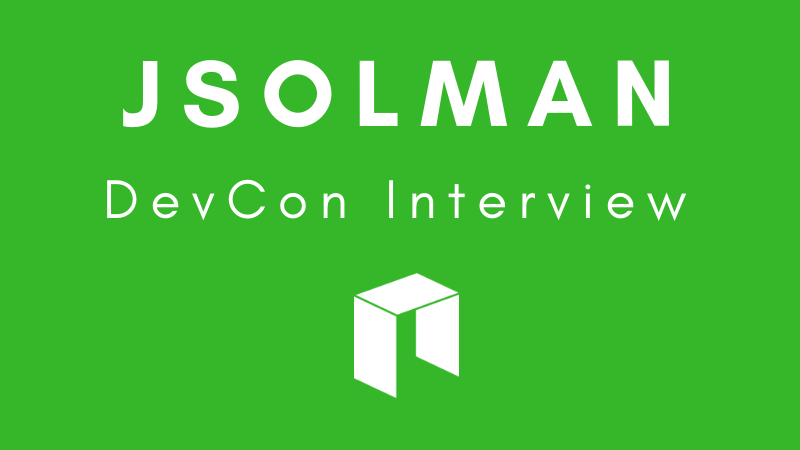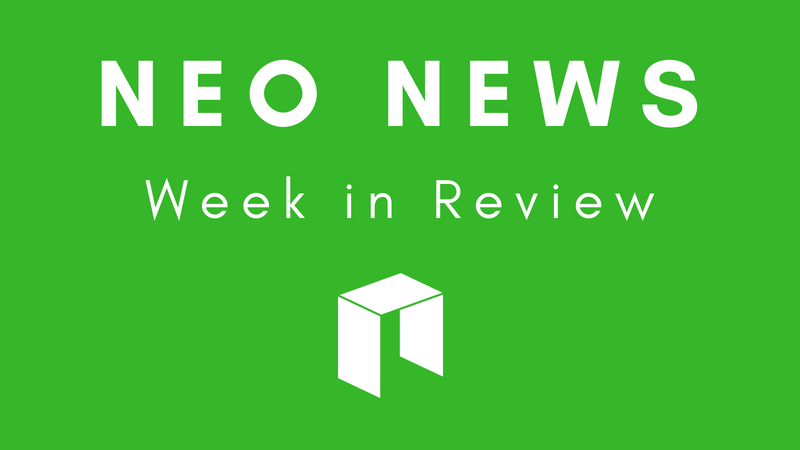
Jeff Solinsky has become known in the NEO community for his many contributions to NEO and his work as the lead developer for the Aphelion exchange. NEO News Today’s Brett Rhodes interviewed him at DevCon 2019, speaking about improvements to the core protocol, his work with Aphelion, consensus development, and the endgame for NEO version 2.0.
Aphelion and NEO Development
Solinsky described the process of moving from a job developing software job at Amazon, to becoming lead developer of the Aphelion wallet and exchange. According to Solinsky, “I started to become aware of some of the things on NEO that could be improved” because of work designing an exchange with on-chain operations. Frequent pull requests and discussion on the NEO GitHub led to Solinsky being officially named a NEO Core Developer in January of 2019 through NEO’s Core Developer initiative.
“From the beginning, [Aphelion] wanted to involve the community,” so they released early and often with many iterations to patch issues as they arose. The SEC’s enforcement action against EtherDelta founder Zachary Coburn caused the Aphelion exchange to close briefly, and Solinsky spent a month implementing a KYC solution which allows Aphelion to refuse United States-based trading.
Solinsky also reported that there is development work towards a solution to offer cross-chain trading on the Aphelion exchange. He said that “Aphelion has a lot going for it, but for me, a lot of my time now is going to be as a core dev [for NEO].
Memory Pool Development
Solinsky’s busy year of development in 2018 culminated in a set of changes to the way that the NEO blockchain handles its pending transactions. He explained, “The consensus nodes would get held up because they would be so busy processing transactions” during periods of heavy transaction volumes. He implemented a fix that allows the memory pool to efficiently handle large batches of pending transactions while prioritizing transactions that have paid to go first.
In addition, consensus nodes are more selective about telling other nodes about their unverified transactions after every block. According to Solinsky, “the network could DDoS itself” previously when facing high volumes of low-priority transactions, but is now engineered to regulate its communications better, focusing on the transactions likely to be included in the next block.
“With the next release [NEO-CLI 2.9.5], nodes will be able to upgrade, and we’ll definitely see the network get better.” Additionally, Solinsky states that consensus improvements are “in PR right now,” and “the fork block problem will not be a problem in the future.”
“We’re going to be able to see a blockchain that could really start being used in commerce” after the memory pool and consensus improvements are published, Solinsky speculated.
Consensus Nodes
Solinsky expects the number of consensus nodes running on the NEO blockchain will increase after the consensus improvements go live. Solinsky and Aphelion plan to offer consensus node voting services to future updates of the wallet.
Closing Thoughts
Solinsky spoke about the late stages of NEO 2.0: “I think the community should be really excited about this year. Last year…yes, there were some problems with the NEO network, but there is a number of them that have already been fixed.”
“And I think with this next set of changes, with this next release [2.9.5], you’re going to see a whole new level of stability in the NEO network, and this year is going to bring some very, very amazing developments.”
“NEO 3.0 still has a little road to go, but even while we’re waiting for that, we’re going to see the opportunity for real usage even on 2.0.”
Solinsky’s interview with Rhodes can be viewed in full below:








About The Author: Colin Closser
Colin Closser, M.D., was a speaker at the first NEO DevCon in San Francisco. A devoted contrarian, he has managed the improbable: a peaceful and healthy life, despite holding a medical degree. He aspires towards the wisdom of Michael Lewis and Nassim Nicholas Taleb.
More posts by Colin Closser